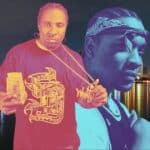Hip-hop has been a popular genre of music in Niger since the late 1990s. The first known Nigerien hip-hop album was released in 2000 by Lakal Kaney, titled “La voix du Ténéré.” Since then, many hip-hop groups have emerged and performed in Niamey, the capital city of Niger.
In addition to performing in concerts, hip-hop groups in Niger have also participated in benefit shows and contests organized by the UNICEF cultural center. This has helped to promote the genre and provide a platform for emerging artists. Over the years, Nigerien hip-hop has gained popularity both locally and internationally, with many artists incorporating traditional Nigerien music into their songs.
Despite the challenges faced by the music industry in Niger, such as limited access to recording studios and lack of funding, hip-hop has continued to thrive as a form of artistic expression. The genre has given a voice to the youth of Niger, addressing social and political issues, and showcasing the country’s rich cultural heritage. In this article, we will delve deeper into the history of hip-hop in Niger, explore its unique characteristics, and highlight some of the most popular artists in the genre.
The Birth of Hip-Hop in Niger
Hip-hop music was introduced to Niger in the early 1990s, and it quickly became a popular genre among the youth. The music was heavily influenced by American hip-hop culture, which was introduced to Niger through the media and the internet. Nigerien youth were drawn to the music’s energetic beats, catchy lyrics, and messages that spoke to their experiences.
Nigerien hip-hop artists initially imitated American rappers, but over time, they began to infuse their own cultural and musical influences into the genre. The music started to reflect Nigerien culture, incorporating traditional African rhythms, instruments, and languages. This fusion of West African and American hip-hop styles created a unique sound that was distinctly Nigerien.
One of the first Nigerien hip-hop groups was MTS Matassa, which was formed in the mid-1990s. The group’s music addressed social issues such as poverty, corruption, and political instability, which were prevalent in Niger at the time. MTS Matassa’s music resonated with Nigerien youth, who saw the group as a voice for their generation.
As the popularity of hip-hop grew in Niger, more and more artists emerged, each bringing their own unique style and message to the genre. Today, Nigerien hip-hop continues to evolve, with artists incorporating new sounds and influences into their music.
In conclusion, the birth of hip-hop in Niger was a result of the genre’s global popularity and its ability to speak to the experiences of Nigerien youth. The music has become an important part of Nigerien culture, reflecting the country’s history, struggles, and aspirations.
Influence of Nigerian Music
Nigerian music has had a significant influence on the development of hip-hop in Niger. The Nigerian music industry is one of the largest in Africa and has produced many successful artists in various genres such as Afrobeat, pop, dance, and hip-hop. Nigerian artists like Wizkid, Burna Boy, Davido, P Square, Olamide, 2face Idibia, and The Remedies have gained international recognition, and their music has been well received in Niger.
Nigerian music has influenced hip-hop in Niger in various ways. One of the most significant influences is the use of pidgin English in lyrics. Pidgin English is a creole language that developed as a lingua franca in Nigeria and is widely spoken in Niger. Many Nigerian hip-hop artists use pidgin English in their lyrics, and this has influenced Nigerien hip-hop artists to do the same.
Another influence of Nigerian music on Nigerien hip-hop is the use of traditional African rhythms and instruments. Nigerian music incorporates various traditional rhythms and instruments such as the talking drum, shekere, and kalimba. Nigerien hip-hop artists have also incorporated these rhythms and instruments into their music, giving it a distinct African sound.
The success of Nigerian music has also inspired Nigerien hip-hop artists to strive for international recognition. Nigerian artists have shown that it is possible to achieve success on a global scale while staying true to their African roots. This has motivated Nigerien hip-hop artists to work harder and produce music that can compete on an international level.
In conclusion, Nigerian music has had a significant influence on the development of hip-hop in Niger. The use of pidgin English, traditional African rhythms and instruments, and the success of Nigerian artists have all contributed to the growth of Nigerien hip-hop.
Popular Hip-Hop Artists in Niger
Nigerien hip-hop has been gaining popularity in recent years, with several artists making a name for themselves both locally and internationally. Here are some of the most popular hip-hop artists in Niger:
Rema
Divine Ikubor, popularly known as Rema, is a young Nigerian rapper, singer, and songwriter. He gained fame in 2019 with his hit single “Dumebi,” which has over 20 million views on YouTube. Rema has won several awards, including the Headies Award for Next Rated in 2019.
Tchakey
Tchakey is a Nigerien rapper and hip-hop artist who has been active in the industry for several years. He is known for his socially conscious lyrics and his collaborations with other artists in the region. Tchakey’s music often addresses political and social issues affecting the people of Niger.
WassWong
WassWong is a Nigerien rapper and hip-hop artist who has been making waves in the industry for several years. He is known for his unique style, which blends traditional African music with modern hip-hop beats. WassWong’s music often addresses issues of identity, culture, and heritage.
Asa
Asa is a Nigerian-French singer and songwriter who has gained international recognition for her soulful music. Although not strictly a hip-hop artist, Asa’s music often incorporates elements of hip-hop, jazz, and blues. She has won several awards, including the Prix Constantin in 2008.
Phyno
Phyno is a Nigerian rapper, singer, and songwriter who has been active in the industry for over a decade. He is known for his unique style, which blends Igbo language and culture with modern hip-hop beats. Phyno’s music often addresses issues of identity, culture, and heritage.
Ice Prince
Ice Prince is a Nigerian rapper and hip-hop artist who has been active in the industry for several years. He gained fame in 2011 with his hit single “Oleku,” which has over 10 million views on YouTube. Ice Prince has won several awards, including the BET Award for Best International Act in 2013.
These are just a few of the popular hip-hop artists in Niger. There are many other talented artists in the region who are making waves in the industry and gaining recognition both locally and internationally.
Hip-Hop Genres in Niger
Hip-hop in Niger is a blend of different languages, cultures, and music styles. The music genre has evolved over the years, with local artists producing a unique sound that reflects the country’s culturally diverse populace. Below are some of the hip-hop genres in Niger:
- Rap Nigerien: This is a style of Nigerien hip-hop that began to develop in the late 1990s, mostly in Niamey, and has become one of the dominant popular music forms in Niger. It is a mélange of different languages spoken in Niger, and the music is often mixed with traditional music, although more aggressive dance styles have been mixed in, reflecting influences of French, American, and other West African hip-hop styles (especially Ivorian hip-hop). Young, dissatisfied Nigeriens have used the form to talk about common social problems.
- Old School: Old school hip-hop is a genre that originated in the 1970s and 1980s and has influenced hip-hop music in Niger. This genre is characterized by its simple beats, catchy hooks, and socially conscious lyrics. It is often considered the foundation of modern hip-hop.
- Reggae: Reggae music has also influenced hip-hop in Niger. Reggae is a music genre that originated in Jamaica in the late 1960s and has become popular worldwide. It is characterized by its heavy basslines and use of Jamaican Patois. Reggae music has been used in Nigerien hip-hop to address social and political issues.
- Electronic: Electronic music is a genre that has gained popularity in Nigerien hip-hop in recent years. It is characterized by its use of electronic instruments and digital technology to create music. Electronic music has been used in Nigerien hip-hop to create unique sounds and experiment with different beats.
- Juju: Juju music is a genre that originated in Nigeria in the 1920s and has influenced music in Niger. It is characterized by its use of traditional African instruments, such as the talking drum and the shekere. Juju music has been used in Nigerien hip-hop to create a fusion of traditional African music and modern hip-hop beats.
- Highlife: Highlife is a music genre that originated in Ghana in the early 20th century and has influenced music in Niger. It is characterized by its use of Western instruments, such as the guitar and trumpet, and African rhythms. Highlife music has been used in Nigerien hip-hop to create a fusion of African and Western music.
- Jazz: Jazz music has also influenced hip-hop in Niger. Jazz is a music genre that originated in the United States in the late 19th and early 20th centuries and has become popular worldwide. It is characterized by its use of improvisation and swing rhythms. Jazz music has been used in Nigerien hip-hop to create a fusion of jazz and hip-hop beats.
Hip-hop in Niger is a diverse and dynamic music genre that continues to evolve. Local artists have used the genre to address social and political issues, experiment with different sounds, and create a unique Nigerien hip-hop sound.
Evolution of Hip-Hop in Niger
Hip-hop and rap culture in Niger began to emerge in the late 1990s, mostly in Niamey, and has become one of the dominant popular music forms in the country. The music genre was heavily influenced by American culture in its early stages. However, local artists produced a genre unique to Niger’s culturally diverse populace by combining classic hip hop elements with traditional African music.
In the mid-1990s, Nigerien hip-hop and rap exploded in popularity. Hip hop groups began to appear and perform in Niamey in 1998. In August 2004, UNICEF opened its “Scene Ouverte Rap,” where 45 new groups entered selections among an informal count of 300 existing groups. This platform helped to provide exposure to new artists and contributed to the growth of the hip-hop industry in Niger.
The hip-hop culture in Niger is not restricted to a music style, but rather a social culture of young people. It has become a mouthpiece for the youth, expressing their thoughts on social and political issues. The genre has also helped to promote the cultural identity of Niger, as artists incorporate traditional instruments and music into their works.
Despite the challenges faced by the Nigerian music industry, hip-hop has continued to thrive in the country. The emergence of CD production and music producers has helped to provide a platform for artists to showcase their talents and reach a wider audience. The fusion of traditional music with hip-hop has also helped to create a unique sound that is distinctively Nigerian.
In conclusion, the evolution of hip-hop in Niger has been a significant cultural movement that has helped to provide a voice for the youth. The genre has been able to incorporate traditional music and instruments while still maintaining the classic elements of hip-hop. The growth of the industry has also provided opportunities for new artists to showcase their talents and contribute to the cultural identity of Niger.
Sociopolitical Influence of Hip-Hop
Hip-hop has emerged as a powerful tool for social and political commentary in Niger. The genre has given a voice to young Nigeriens who have been marginalized by the country’s political and economic systems. Hip-hop artists in Niger have used their music to address a range of social and political issues, including corruption, poverty, and unity.
One of the most significant sociopolitical issues addressed by Nigerien hip-hop is corruption. Corruption is a major problem in Niger, and it has a significant impact on the country’s economy and society. Hip-hop artists have used their music to call attention to the issue, and to demand accountability from the country’s political leaders. Some artists have even gone so far as to name specific politicians who they believe are corrupt, using their music to expose their wrongdoing.
Poverty is another issue that has been addressed by Nigerien hip-hop artists. Niger is one of the poorest countries in the world, with a large percentage of the population living below the poverty line. Hip-hop artists have used their music to highlight the struggles faced by Nigeriens living in poverty, and to call for greater economic opportunity and social justice.
Unity is also a theme that is frequently addressed by Nigerien hip-hop artists. Niger is a diverse country with many different ethnic and linguistic groups, and hip-hop has provided a platform for artists to celebrate this diversity and promote unity. Many hip-hop songs in Niger are performed in French, which is the country’s official language and a symbol of national unity.
In conclusion, hip-hop has emerged as a powerful force for social and political commentary in Niger. The genre has given a voice to young Nigeriens who have been marginalized by the country’s political and economic systems. Hip-hop artists have used their music to address a range of sociopolitical issues, including corruption, poverty, and unity, and to demand accountability and social justice.
Hip-Hop and Other Music Styles
Hip-Hop music in Niger has been influenced by various music genres, such as Afrobeats, rock, Hausa, and Tuareg music. The blending of these music styles has resulted in a unique sound that is distinctly Nigerien.
Afrobeats, a music genre that originated in Nigeria, has gained popularity in Niger in recent years. It is characterized by its upbeat tempo and fusion of African rhythms with Western pop music. Nigerien hip-hop artists have incorporated elements of Afrobeats into their music, resulting in a more danceable sound.
Rock music has also had an impact on Nigerien hip-hop. It has been noted that some Nigerien hip-hop artists have incorporated rock elements into their music, such as guitar riffs and heavy drums. This fusion of rock and hip-hop has resulted in a more aggressive sound that appeals to a wider audience.
Hausa and Tuareg music, which are traditional music styles in Niger, have also influenced Nigerien hip-hop. Some hip-hop artists have incorporated elements of these music styles into their music, such as the use of traditional instruments like the ngoni and the kora. This fusion of traditional Nigerien music with hip-hop has resulted in a unique sound that celebrates Nigerien culture.
In conclusion, Nigerien hip-hop has been influenced by various music styles, resulting in a unique sound that is distinctly Nigerien. The blending of these music styles has allowed Nigerien hip-hop to appeal to a wider audience while still celebrating Nigerien culture.
The Future of Hip-Hop in Niger
Hip-hop has become an increasingly popular form of artistic expression in Niger over the past few decades. As the country continues to develop and change, the future of hip-hop in Niger is bright and promising.
One of the factors driving the growth of hip-hop in Niger is the increasing availability of technology. With the rise of social media and digital platforms, artists have more opportunities than ever before to share their music with a wider audience. This has allowed Nigerien hip-hop to gain international recognition and exposure, and has helped to foster a sense of community among artists and fans alike.
Another key factor in the future of hip-hop in Niger is the role it plays in social and political commentary. As one of the few outlets for young people to express their frustrations and hopes, hip-hop has become a powerful tool for social change. It has given voice to issues such as poverty, inequality, and corruption, and has helped to bring attention to the struggles faced by many Nigeriens.
Looking ahead, there are several challenges that the hip-hop community in Niger will need to address. One of the biggest is the lack of infrastructure and resources available to artists. While there are some studios and venues in cities like Niamey, many artists still struggle to find the support they need to create and share their music.
Despite these challenges, there is reason to be optimistic about the future of hip-hop in Niger. With the continued growth of the music industry in West Africa and the support of organizations like UNICEF, there is a growing recognition of the potential of hip-hop to drive social change and promote positive values. As long as artists continue to push the boundaries of the genre and speak truth to power, the future of hip-hop in Niger looks bright.
Frequently Asked Questions
Who are the top hip hop artists in Niger?
Some of the top hip hop artists in Niger include Mdou Moctar, Bombino, and Tal National. These artists have gained international recognition for their unique blend of traditional African music with hip hop beats and lyrics.
What is the history of hip hop in Africa?
Hip hop music originated in the United States in the 1970s and was later introduced to Africa in the 1980s. Since then, African hip hop has evolved into a diverse and vibrant genre, with influences from traditional African music and local languages.
What are some popular African hip hop songs?
Some popular African hip hop songs include “All Eyes on Me” by Burna Boy, “Jollof on the Jet” by DJ Cuppy featuring Rema and Rayvanny, and “Soco” by WizKid featuring Ceeza Milli, Spotless, and Terri.
How has hip hop influenced African culture?
Hip hop has had a significant impact on African culture, particularly in terms of fashion, dance, and language. Many African youth have adopted hip hop style clothing and dance moves, and have also incorporated hip hop slang into their everyday language.
What are the characteristics of African hip hop?
African hip hop is characterized by its fusion of traditional African music with contemporary hip hop beats and lyrics. It often incorporates local languages and cultural references, and addresses social and political issues facing African communities.
Where can I find African hip hop dance classes?
African hip hop dance classes can be found in many major cities around the world. Check with local dance studios, community centers, or cultural organizations to find classes in your area. Online resources such as YouTube can also provide tutorials and inspiration for learning African hip hop dance.



